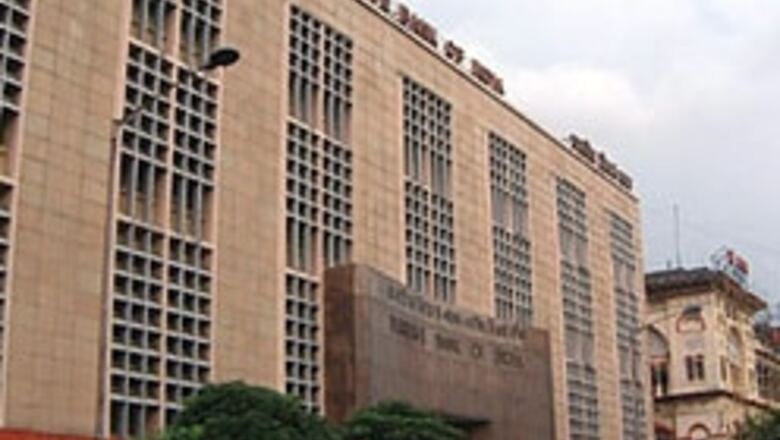
views
New Delhi: The Reserve Bank of India to suck out Rs 11,500 crore from the system to curb inflation.
Inflation stood at 6.63 per cent a week before. The impact though of some of the measures announced in the Budget to tame inflation will only be felt in the days ahead.
In a bid to suck out excess liquidity to further contain inflation, RBI on Friday announced a modified market stabilisation scheme (MSS) and liquidity adjustment facility (LAF).
Rs 8,500 crore would be absorbed through MSS auctions next week and Rs 3,000 crore through reverse repo auctions under LAF on Monday, said RBI in a notification issued in Mumbai on Friday.
The schedule for the MSS would be mobilisation of Rs 6,000 crore through 6.5 per cent dated Government securities 2009 on March 6 and Rs 1,500 crore through 91-day T-Bill and Rs 1,000 crore through 182-day T-Bill on March 7.
The absorptions through reverse repo auction, a process through which banks sell bonds to the central bank, would comprise Rs 2,000 crore in first liquidity adjustment facility (LAF) and Rs 1,000 crore in the second LAF.
In case of partial rejection of bids, allocations would normally be made proportionately on a pro-rata basis.
The RBI said while bidding in LAF auctions, scheduled commercial banks (excluding regional rural banks) and primary dealers should ensure that clear funds are available with them to cover the bid at the time of its submission.
Apart from LAF modifications, the central bank also decided that MSS will now use a mix of treasury bills and dated securities in a more flexible manner.
This was being done keeping in view capital flows in the recent period, the assessment of volatility and durability of capital flows, which are crucial for liquidity management to contain inflation.
The modified arrangements for LAF and MSS would facilitate in maintaining liquidity in the system and respond more swiftly to the evolving liquidity situation. This is in line with the objectives and stance of the monetary policy, which aims at containing inflationary expectations without hurting high growth.
RBI has been currently conducting liquidity management largely through LAF, which is intended as a window for adjusting day-to-day mismatches, and the MSS, which is used for addressing large swings in liquidity conditions, which could have a more durable character.
Under the existing MSS programme, the annual ceiling for 2006-07 was fixed at Rs 70,000-crore.
The issuance of T-Bills under MSS was undertaken through regular weekly auctions with the MSS portion of 91-day T-Bills of Rs 1,500-crore and those for a fortnightly 182-day and 364-day T-Bills of Rs 1,000-crore each.


















Comments
0 comment